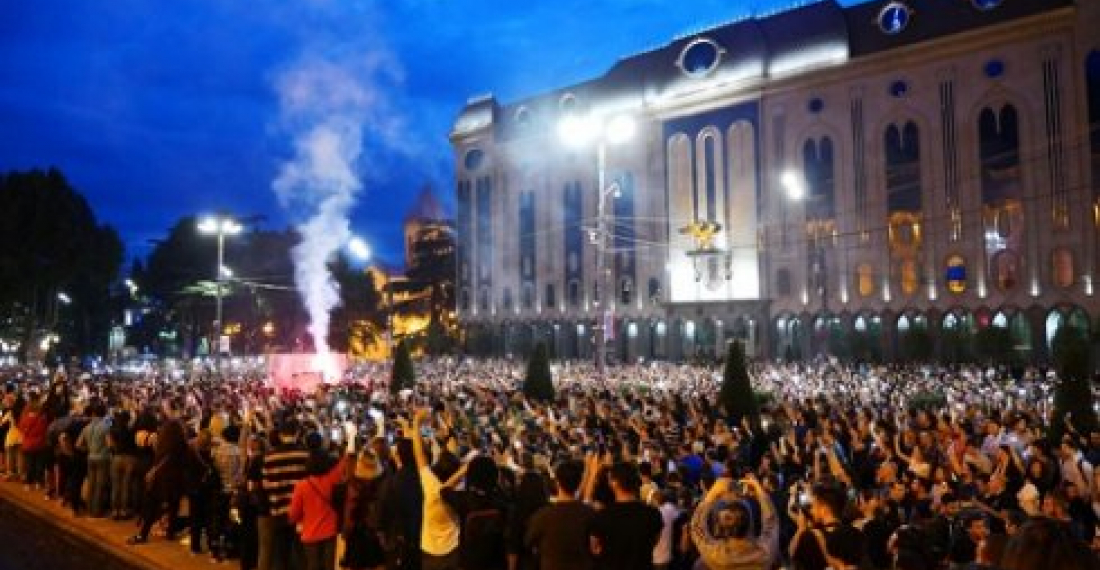- Armenia-Azerbaijan Strategic Expert Platform: Members emphasise the importance of the present moment for the South Caucasus and call for the momentum to be used for the long-term peace and prosperity of the region
- Thursday Interview: Dr. Anar Valiyev
- Food insecurity in Somalia has nearly doubled in the past year
- Türkiye evaluating potential measures in case of a US-Iran conflict
- European Parliament reaffirms support for Ukraine and EU Path
- EU moves ahead with Ukraine loan preparations despite Hungarian block

Protestors in Tbilisi are calling for the resignation of the Prime Minister and his government after a controversial court decision connected with the murder of two teenagers in Tbilisi last December, an incident which came to be known as the Khorava Street incident.
The father of one of the killed teenagers has been insisting that the line of investigation of the case was wrong and that the authorities were trying to protect an employee of the Prosecutors Office who was implicated in the murder. The court ruling on Thursday appeared to question the government's narrative of events.
Later on Thursday, Irakli Shotadze, the Chief Prosecutor of Georgia resigned. Shotadze issued a statement saying the Prosecutor's Office did everything it could to hold the perpetrators accountable.
A large crowd gathered on Rustaveli Avenue in the evening. Protestors initially appeared to be calling for the resignation of the Prosecutor-General, but later their demands widened and they started calling for the resignation of all the government.
Georgian Prime Minister Giorgi Kvirikashvili late on Thursday evening tried to address the participants of the protest but was shouted down. In a late night press conference Kvirikashvili announced that he was moving the investigation of the case to the Ministry of Interior and promised wide public consultations on the selection of the Ministry of Interior.
Protestors announced that a large rally will be convened on Friday afternoon.
source: commonspace.eu with agencies
photo: Protestors in front of the Georgian Parliament on 31 May (picture courtesy of Radio Free Europe/Radio Liberty)








